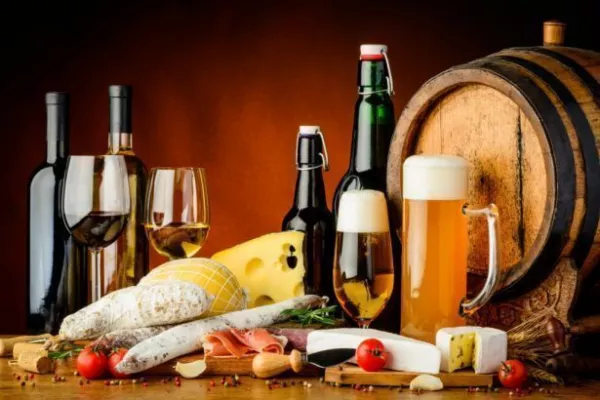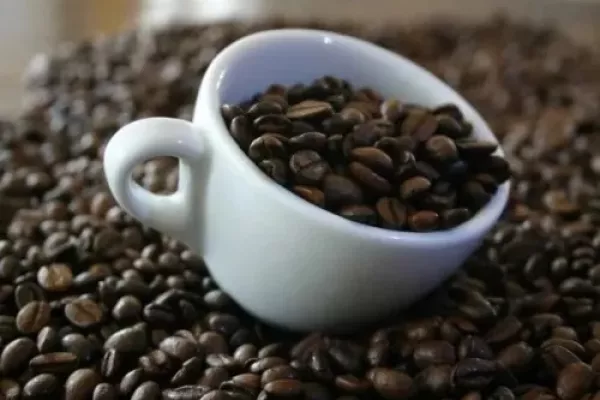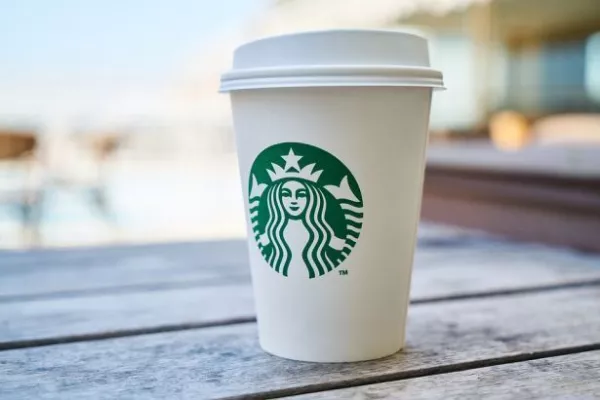Hospitality Ireland presents a round-up of global drinks, hotel, food and restaurant news.
Italy's Campari To Offer Shares To Employees From 2022 - Unions
Italy's Campari will offer employees the option of receiving a portion of their salaries in the group's shares starting from next year, the FIA CISL union said on Wednesday October 13 after giving its approval to the drinks group's project.
The initiative will target the group's 4,000 workers and will give them the chance of getting bonus shares if they buy and hold shares for a certain period.
The union said it would allow staff to share in the group's financial results, and encourage them to be more informed and take decisions on Campari's future by attending shareholders' meetings.
"We hope other groups will take similar initiatives," FIA CISL said in a statement.
Deutsche Bank Vows Vigorous Defence In Lawsuit By Spanish Hotel Group
Deutsche Bank said on Wednesday October 13 that it would vigorously defend itself against a lawsuit by a Spanish hotel group claiming €500 million in losses on derivatives products.
The suit is the latest development in an issue that first came to light earlier this year, and is a setback for the bank which has been working to restore its public image.
At issue are allegations that Deutsche Bank may have mis-sold risky investment bank products to customers in Spain and elsewhere, a matter that the bank is investigating internally
The Ibiza-based company, Palladium Hotel Group, said in court documents dated Sept. 30 that Deutsche's bankers sold products knowing that the hotel executives "did not have any (or any significant) experience in dealing with complex financial derivative transactions". Deutsche Bank said in a statement: "Palladium's claim is without foundation and we will be vigorously defending ourselves against it. Palladium is a sophisticated investor with extensive experience of using derivatives."
The lawsuit states that it concerns hundreds of transactions that occurred between 2014 and 2019, and that the company executive involved had "placed trust and confidence" in the Deutsche banker who marketed the deals.
"They were exceptionally difficult for anyone other than a highly sophisticated and experienced market participant such as DB, and in practice impossible for a corporate client" like Palladium to assess, the suit states.
Deutsche Bank said it did not expect to see further claims the size of Palladium's.
The Financial Times first reported about the suit, which was filed in British court. Palladium declined to comment.
Winemaker Winc Targets $263m Valuation In U.S. IPO
Winc Inc is looking to raise $80 million in an initial public offering in the United States, according to a regulatory filing on Wednesday October 13, with the winemaker targeting a valuation of about $263 million.
The Santa Monica, California-based company plans to sell five million shares of its common stock in the IPO, priced between $14 and $16 per share.
Originally launched as Club W in 2011 and rebranded in 2016, Winc's portfolio of brands include "Lost Poet" and "Folly of the Beast". The company also operates a wholesale channel, besides selling products directly to consumers.
Beginning March 2020, as public venues shut due to the coronavirus outbreak, the company saw an increase in demand from consumers primarily due to remote working which forced people to spend more time at home, Winc said in its prospectus.
Winc's main revenue driver is its direct-to-consumer (DTC) channel, through which the company sells its products online.
The winemaker gives customers a discounted first purchase, typically consisting of a four-bottle order, after which it encourages them to sign up for a Winc.com membership.
To collect predictable revenue each month, Winc charges a monthly subscription fee in return for credits, which can be used to purchase products on its online channel. Unused credits roll over each month and never expire.
It competes with the likes of Constellations Brands Inc and Duckhorn Vineyards, the brand owned by Duckhorn Portfolio Inc.
BofA Securities and Canaccord Genuity are among the underwriters for the offering, after which Winc expects to list on the New York Stock Exchange under the symbol "WBEV."
FDA Sets New Goal For Lower Salt In Everyday American Food
The U.S. Food and Drug Administration on Wednesday October 13 is pushing to cut salt levels by an average of 12% in food ranging from packaged meats to cheese, trying to clamp down on a growing epidemic of preventable health issues that has plagued the country.
In far-reaching guidelines, the FDA is seeking voluntary short-term lower sodium targets for food manufacturers, chain restaurants and food service operators - focusing largely on processed and take-out food.
The agency wants to cut sodium intake to an average of 3,000 milligrams per day, compared with 3,400 mg over the next two and half years.
But the average intake would still be above the Dietary Guidelines for Americans' recommended limit of 2,300 mg per day for anyone over 14 years of age.
The decision is likely to affect the consumer packaged foods industry and major players PepsiCo Inc, Kraft Heinz Co and Campbell Soup. Fast-food chains that Americans love like McDonald's Corp will also be on the radar.
Health experts, however, said the regulator needs to take a stronger stance.
"The FDA's targets represent an important step forward, but lowering sodium intake to 3,000 mg per day is not enough," the American Heart Association said in a statement.
"We urge the FDA to follow today's action with additional targets to further lower the amount of sodium in the food supply and help people in America attain an appropriate sodium intake."
High salt consumption has been linked to high blood pressure, which is a leading cause of heart attacks and strokes.
More than 4 in 10 American adults suffer from high blood pressure and reducing sodium intake has the potential to prevent hundreds of thousands of premature deaths and illnesses in the coming years, according to the agency.
Salt is an ubiquitous ingredient in almost every food. The agency focused on 163 categories of processed, packaged and prepared foods, including different types of cheese, pickles, nuts, sauces, deli meats, crackers and poultry products - all the things Americans like to eat. Even more so during the pandemic.
The FDA said the modest reductions made slowly over the next few years will substantially decrease diet-related diseases and said it plans to issue revised, subsequent targets to further lower the sodium content incrementally.
"We are going to monitor this as we go along ... Watch who's doing well, what food groups are getting there and when," Janet Woodcock, the acting commissioner of FDA said in a media call.
"Hopefully before we get to the end of the two and a half year period, we will have a good idea of what our plan should be for the next iteration."
The majority of sodium consumed comes from processed, packaged and prepared foods, and not from table salt added to food when cooking or eating, making it difficult to control the amount of sodium consumed, the FDA said.
The Food Marketing Institute, a trade group representing the food industry, said it supported the FDA's decision to extend the recommended amount of time for businesses to achieve voluntary sodium targets and that it was reviewing the guidelines and seeking feedback from its members.
The agency said the public health benefit of limiting salt intake is estimated by researchers to result in tens of thousands fewer cases of heart disease and strokes each year, as well as billions of dollars in healthcare savings over time.
Brazil Coffee Exports Fall 29% In September On Shipping Hurdles
Brazilian exports of green coffee fell 29% in September compared with a year earlier, to 2.74 million 60-kg bags, exporters association Cecafe said on Wednesday October 13, as shipping difficulties continued to hamper the commodity's flow.
Cecafe's head, Nicolas Rueda, said there was no change regarding shipping, with exporters struggling to get bookings for containers and vessels, as well as facing frequent loading postponements from shipping companies.
"There is intense competition among exporters to secure containers and to book loadings. And it is all very costly," Rueda said in a statement, adding that the situation is testing the planning capacity of exporters.
He said importers in the main consuming countries such as the United States, Brazil's top client for coffee, are suffering as well, having to manage the disruptions in the supply chain.
Brazilian exports of arabica coffee, the milder variety, fell 24% to 2.42 million bags, while shipments of robusta coffee, the type used in blends and by the instant coffee industry, fell 51% to only 326,045 bags.
There is strong demand for robusta coffee in the Brazilian domestic market as roasters increase the use of that coffee in their blends since arabica prices have jumped to all-time highs after the frosts in July.
Beyond being the world's largest coffee exporter, Brazil is the second largest consumer of the beverage behind the United States.
From Beef Bowls To Coffee, Cost Surge Squeezes Japan's Salaryman Staples
In 50 years running a cafe in Tokyo, Shizuo Mori can't remember a time when his coffee supplies cost this much.
The 78-year-old, who owns Heckeln, an old-school coffee shop in Tokyo's Toranomon business district, says the wholesale cost of his main product has surged 5% in the last three months.
That is a jolting experience for a country where weak growth has meant that prices of many things - including wages - haven't risen much in decades.
While he has not yet passed on the increase to his customers - coffee at his cramped shop costs 400 yen ($3.50) a cup - price pressures are squeezing his bottom line and he knows his regulars have low tolerance for such hikes.
"Salarymen don't get paid a lot, so everyone will stop drinking if prices are too high," said Mori, whose shop is famous for its caramel sauce pudding, slabs of buttered toast and ham and egg sandwiches.
Across Japan, consumers and businesses like Heckeln are facing sticker shock for everything from coffee, beef bowls and other items whose prices have barely budged during the country's decades of deflation.
Japan's core consumer inflation - which excludes fresh food prices - only stopped falling in August, snapping a 12-month deflationary spell. Economists and policymakers expect to see the recent price rises reflected in official data in the coming months.
Although Japan's inflation is still modest by global standards, surging raw material costs have made it almost impossible for firms in the world's third-largest economy not to pass on wholesale price hikes, something they have typically resisted for fear of losing business.
For younger Japanese, many with no memory of significant prices hikes, that has come as a rude surprise especially as households, workers and businesses struggle to shake off the economic hit from the pandemic.
"It's terrible - incomes haven't changed. Taxes are rising. People are increasingly becoming poor," said Yuka Urakawa, 23, who works in the beauty industry and was going for a noodle dinner near Tokyo's Yurakucho station.
Like many on social media, she has noticed changes to prices of beef bowls at restaurant chains like Matsuya Foods.
At most of its outlets, Matsuya has stopped selling its 380 yen "premium" beef bowl and started offering regular bowls using cheaper ingredients such as frozen beef and Chinese spring onions for the same price.
Dairy products maker Meiji Holdings has hiked prices of its margarines by up to 12.8%, the first increase since 2008, and other food companies have also raised prices on their main product lines for the first time in years.
While not necessarily welcomed by consumers, the trend may be starting to nudge the way Japanese perceive the prices they pay for staples https://www.reuters.com/world/asia-pacific/more-japan-households-see-higher-inflation-year-now-boj-survey-2021-10-11.
"It feels like Japan's prices were too cheap for too long compared to other countries," said Nozomi Yuasa, 28, who was also having dinner near Yurakucho station and has noticed price rises in eggs, dairy and candy.
The Bank of Japan's quarterly "tankan" business survey this month showed more companies facing higher input costs, but also seeing rises in the price they charge to customers.
While reviving stagnant consumer prices has been the central bank's main objective for years, its strategy has been to do so by stoking demand. Inflation caused by constrained supply, on the other hand, is unwelcome, especially if it's not matched by increased wages.
Aware of households' sensitivity to price hikes, some firms are treading carefully. Aeon Co Ltd, Japan's largest retailer by sales, said it won't raise prices on about 3,000 products of its own brand Topvalu products this year, instead seeking to keep cost low in part by bulk-buying.
"Japan's demand recovery is lagging due to the coronavirus," said Hiroaki Muto, economist at Sumitomo Life Insurance Co.
"If there are price rises, it'll result in lower demand."
Australian Casino Operator Crown Braces For Adverse Findings From Misconduct Inquiry
Australian casino company Crown Resorts Ltd may be declared unfit for its main gambling licence when an inquiry hands its findings to the government on Friday October 15, but is expected to be allowed to stay open with conditions because of its outsized economic role.
Investors have largely factored in wide-ranging adverse findings from an inquiry mandated by the state of Victoria, home to its Melbourne casino which accounts for three-quarters of its profits.
The inquiry, known as a Royal Commission, has heard detailed accounts of Crown enabling money laundering and failing to act on regulatory concerns and is the second such probe after one in neighbouring New South Wales state heard similar accounts.
That earlier inquiry led to a suspension of Crown's Sydney gambling licence before its A$2.1 billion skyscraper resort was opened in December 2020. It continues to operate with restaurants, bars and a hotel, but no gambling.
The Melbourne casino could, however, retain gambling in some way albeit with supervision, investors say.
They note it is one of the state's biggest employers with 11,500 staff and the government would be loathe to dent tourism further at a time when the country is preparing to reopen borders after two years of COVID-19 restrictions.
"The expectation is that they will be deemed unfit, that's what most of the market is telling you," said John Ayoub, a portfolio manager at Wilson Asset Management which has Crown shares. "The unknown is: what does that mean?"
"There is a balance between (addressing wrongdoing and) jobs and tax revenues that the casinos do generate. Tourism's going to be a big way we can get ourselves out of the state debt holes that they're in. It's critical infrastructure," he added.
Crown declined to comment. The Victorian government said it would consider the report's findings and release the document publicly by the end of the month.
Over both inquiries, which included billionaire James Packer - Crown's biggest shareholder with a 37% stake - livestreaming evidence from his yacht, executives acknowledged misleading the public by claiming in full-page newspaper ads that it had no association with tour operators with criminal ties.
They also said they were repairing regulator relationships and cutting ties with tour operators. After losing its CEO, chairman, most of its board and many senior staff over the inquiries, the company argues that it is under new management.
At the latest inquiry, Crown's lawyer accepted an "unsuitability" finding was possible, but urged against recommending a breakup or unconditional delicensing of the company.
Crown has had three M&A approaches since the Sydney inquiry. It rejected an offer from U.S. private equity firm Blackstone that valued the company at $6.2 billion and its favoured buyer, rival Star Entertainment Group Ltd, has since walked away. Talks for Oaktree Capital to fund a change of control have also collapsed.
This week media reports accused Star of failing to act on money laundering risks and that has reduced the chances of Crown being ordered shut, said Angus Gluskie, managing director of White Funds Management which has Crown shares.
Regulators will "need to make constructive recommendations. They can't suspend the whole industry," he said.
Crown's shares have tumbled 27% since media reports alleged wrongdoing in 2019, valuing the company at A$6.3 billion ($4.7 billion).
Abu Dhabi Fund Mubadala Unit Acquires A U.S. Franchisee Of Taco Bell
A unit owned by Abu Dhabi state fund Mubadala Investment Company has acquired one of the biggest franchisees of Taco Bell Corp in the United States, according to a statement on Thursday October 14.
Mubadala Capital, an asset management subsidiary, bought K-MAC from Lee Equity Partners Opportunity Fund, the unit said in the statement.
K-MAC operates over 300 Taco Bell restaurants, mostly in the midwestern and southern United States, it said.
U.S. investment bank Goldman Sachs advised Mubadala Capital, while Bank of America and North Point advised the seller.
Domino's Delivers Rare Fall In U.S. Sales As Slowing Demand, Labour Crunch Bite
Domino's Pizza Inc posted its first drop in U.S. same-store sales in over a decade on Thursday October 14, as the world's biggest pizza chain grappled with a slowdown in delivery demand and a tight labour market that created a shortage of drivers.
As COVID-19 curbs ease, Americans have started to eat out at restaurants after more than a year of ordering food at home, slowing sales at Domino's that gets most of its business from deliveries and take-away orders.
Adding to its woes, Domino's also said a severe labour crunch in the United States dealt a blow to its business, forcing it to reduce store operating hours and compromise on delivery service times.
To address the labour shortage, Domino's Chief Executive Officer Richard Allison said the company would maximize the number of deliveries a driver could make per shift.
"I don't see why drivers should ever have to get out of their cars. Why can't we keep them turning to the store back to the customer and maximizing deliveries per driver per hour," Allison said on a call with analysts.
The Michigan-based company said stimulus check benefits rolling off also helped lead to a 1.9% fall in same-store sales at its U.S. restaurants during the third quarter.
That was off analysts' estimate of a 1.89% increase, according to IBES data from Refinitiv, and a reported jump of 17.5% a year ago.
Compared with 2019, however, the pizza chain's U.S. same store sales were still up 15.6%.
Shares of the company rose 2% in afternoon trading, as it also reported an increase of 8.8% in its international same-store sales.
Domino's net income rose 21.5% to $120.4 million or $3.24 per share, beating estimates of $3.11 per share and alleviating some concerns that rising wage expenses were pressuring the company's profit margins.
News by Reuters, edited by Hospitality Ireland. Click subscribe to sign up for the Hospitality Ireland print edition.









